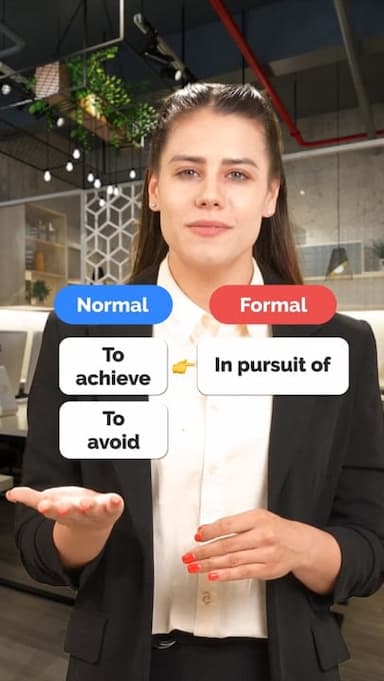Normal vs. Business English
In this video, we’ll explore the distinctions between normal English and business English, focusing on how certain phrases are adapted for more formal, professional communication. Understanding these differences is essential for anyone looking to communicate effectively in a corporate environment.
For example, in casual conversation, you might say “fire” when talking about dismissing an employee. In business English, however, a more formal alternative would be “terminate.” Similarly, “hire” becomes “recruit,” and “start” becomes “kick-off,” signaling a more structured, organized approach.
In business settings, even simple terms like “plan” are often replaced with more formal alternatives like “outline,” and “review” is substituted with “evaluate” to suggest a more in-depth analysis. These slight changes can make your communication sound more polished and professional in meetings, emails, and presentations.
By mastering these business English alternatives, you’ll be better equipped to express yourself clearly and confidently in a professional setting, whether in written or spoken communication. These small shifts can make a big difference in how others perceive your professionalism and expertise.
Get the full app experience
Engaging video lessons and fun quizzes to help you ace your English.
Improve your English Level
Improve your pronunciation
Practice conversations
Sharpen your listening Skills
Fix common mistakes in English
Learn Grammar in a fun way
Expand your English Vocabulary
Coming soon to Google Play
© 2023 fluentjoy.com












